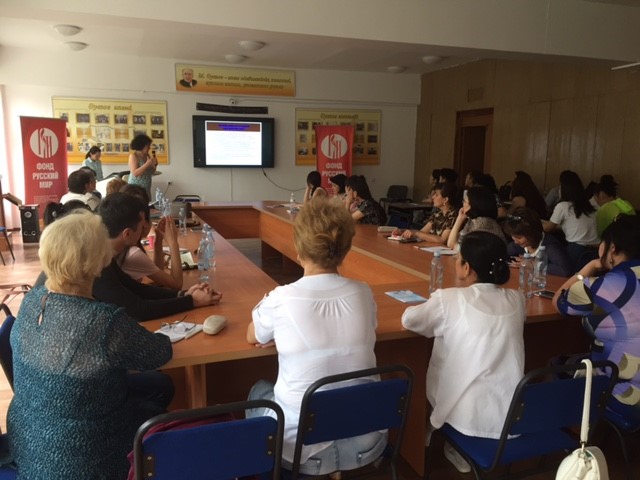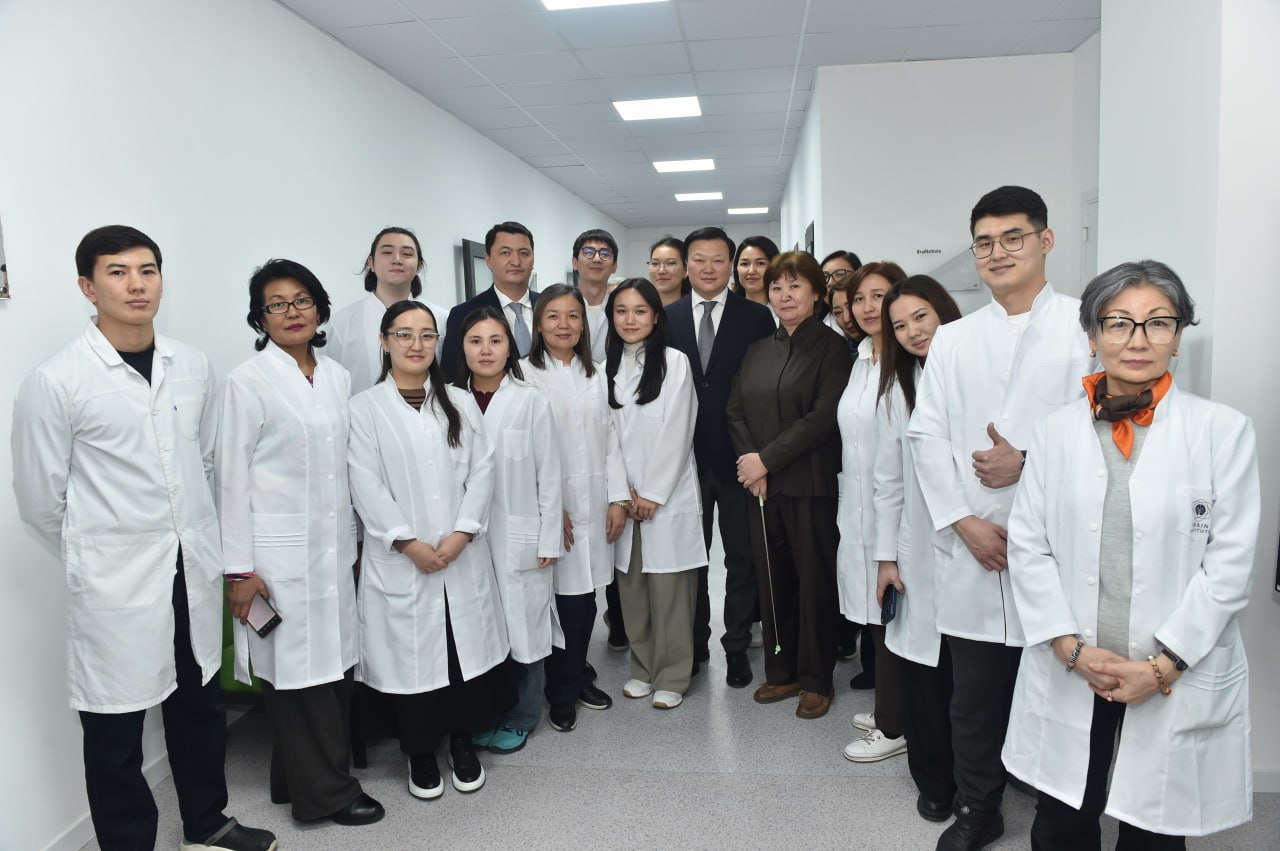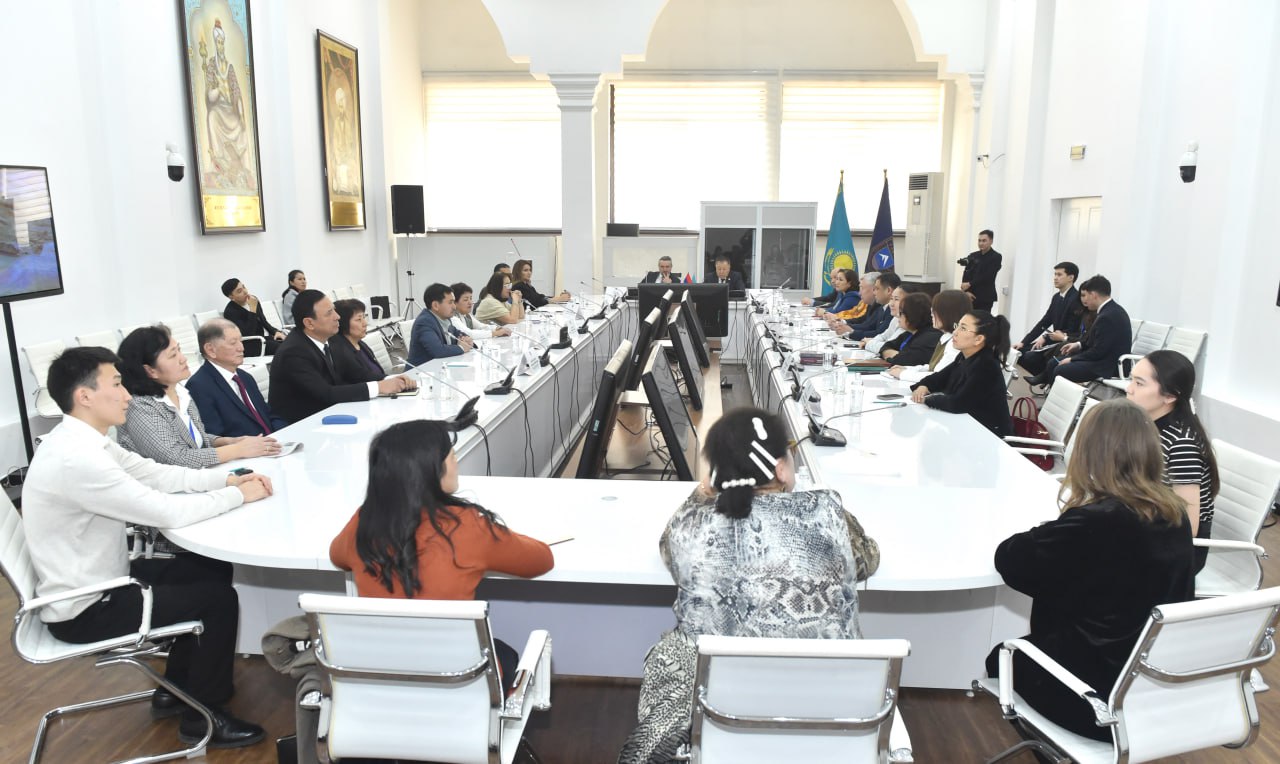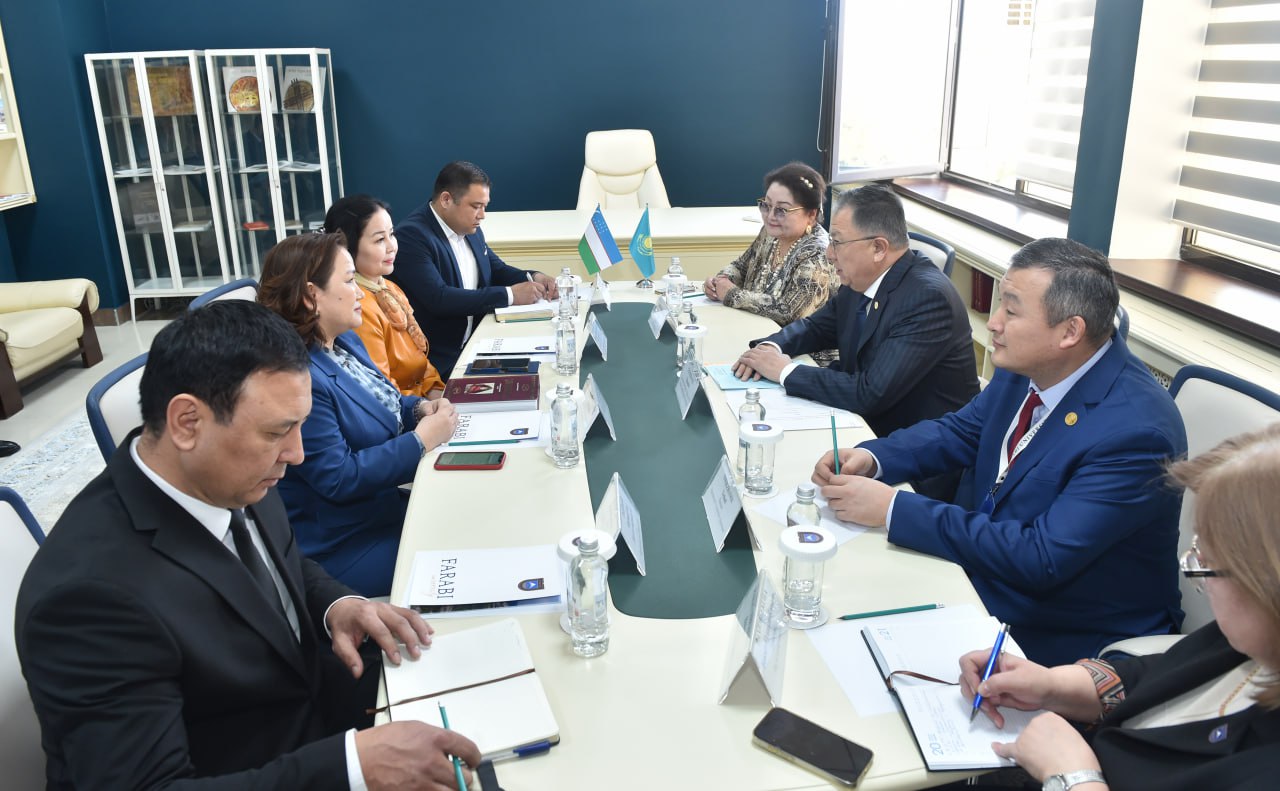“The Russian Language and Culture: Traditions, Innovations and Prospects”

International Summer Linguistic School
“The Russian Language and Culture: Traditions, Innovations and Prospects”
International Summer Linguistic School “The Russian Language and Culture: Traditions, Innovations and Prospects” was held from June 26 to July 1, 2017 on the basis of “The Russian Language and Culture” Center (headed by Candidate of Philological Sciences Mambetova M.K.) and the Department of General Linguistics and European Languages (Head of Chair – Doctor of Philological Sciences Madiyeva G.B.) of Al-Farabi Kazakh National University, supported by the Fund “Russian World” (agreement No.1814P/05-17 of June 5, 2017, Moscow, Russia) and Al-Farabi Kazakh National University (Almaty, Kazakhstan). Participants were university professors, schoolteachers, students, undergraduates, doctoral students, and learners (Kazakhstan, China, USA, Canada, and Turkey).
The lectures were conducted by professors of Moscow universities: Professor Bragina Natalya Georgievna (Department of Russian Literature and Intercultural Communication of State Institute of the Russian Language named after A.S. Pushkin / Department of the Russian Language of Institute of Linguistics of RSHU), Associate Professor Sahakyan Levon Nikolayevich (Department of General and Russian Linguistics of State Institute of the Russian Language named after A.S. Pushkin) and Associate Professor Kazachenko Oksana Vasiliyevna (Department of Foreign Philology of Institute of Humanities and Management of Moscow Pedagogical University).
The purpose of the project “International Summer Linguistic School “The Russian Language and Culture: Traditions, Innovations and Prospects” is to promote the practical implementation of the Cooperation Agreement concluded between the Fund “Russian World” and al-Farabi Kazakh National University; the Russian language and culture at the present stage; conducting a series of lectures, master classes and seminars on topical issues of teaching and learning the Russian language and culture.
Within the framework of summer school, problems were posed that reveal the status of the Russian language and its development in the modern world, as well as the problems of the methodology of teaching Russian as a native and foreign language. A number of topical issues of modern linguistics, sociolinguistics, psycholinguistics, cultural linguistics, theory and practice of intercultural communication were discussed at thematic lectures: the role of the Russian language as a language with a high communicative status in the era of globalization and integration, taking into account new technologies, achievements and prospects of intercultural communication (contacts and conflicts), the results of comparison of Russian linguoculture with other linguocultures, the problems of constructing a thematic classifier, active processes in the Russian language of the globalization era, strategies in teaching intercultural communication: the education of intercultural sensitivity, cultural barriers and communicative failures (how can cultural competence be measured?), the Russian language in the service of the culture of the consumer society, the problem of borrowing as a factor in changing the Russian language consciousness, the values of Russian world: universal, national, and personal.
Within the framework of summer school, a number of master classes and seminars were held: “Other” images: stereotypes, ethnic stereotypes and modernity, Cultural barriers and communicative failures, The role of language in the manipulation of consciousness, How to say what you think and not to offend? (Euphemia and mitigative practices), Factors causing the dynamics of Russian values, the Russian language in the world space: threats, risks, and prospects. In addition, round tables were organized in which school participants could discuss such issues as the Russian language and Russian world in the era of globalization, The violation of language norms, adaptation or variability.
It was noted that modern trends in the development of the Russian language in the era of globalization are characterized by the internationalization of vocabulary, its democratization and active neologization. Since the Russian language is undergoing tremendous changes now as a cultural and social phenomenon, issues related to the role of mass communication and the Internet in the literary norm of the Russian language were raised. These modifications affect all levels of language functioning – phonetic, grammatical, lexical and syntactic. Similar problems of the Kazakh language in a contrastive aspect with the Russian language were revealed. The problems of intercultural contacts and conflicts, the role of borrowings in the Russian and Kazakh languages were discussed. The above tendencies are not unique and characteristic exclusively for the Russian language: they are manifested to a greater or lesser degree in the Kazakh language and culture, not in isolation, but in close relationship with each other. The revealed tendencies cannot be regarded as negative or positive, as evidenced by discussions among linguistic scientists, undergraduates, doctoral students and students of al-Farabi Kazakh National University.
In the final events, the lecturers and participants, noting the high level of the summer school, decided that the tasks set for the International Summer School were fulfilled in full. The interest and involvement of the audience in the discussed problems, allow us to talk about the relevance and necessity of such events.



